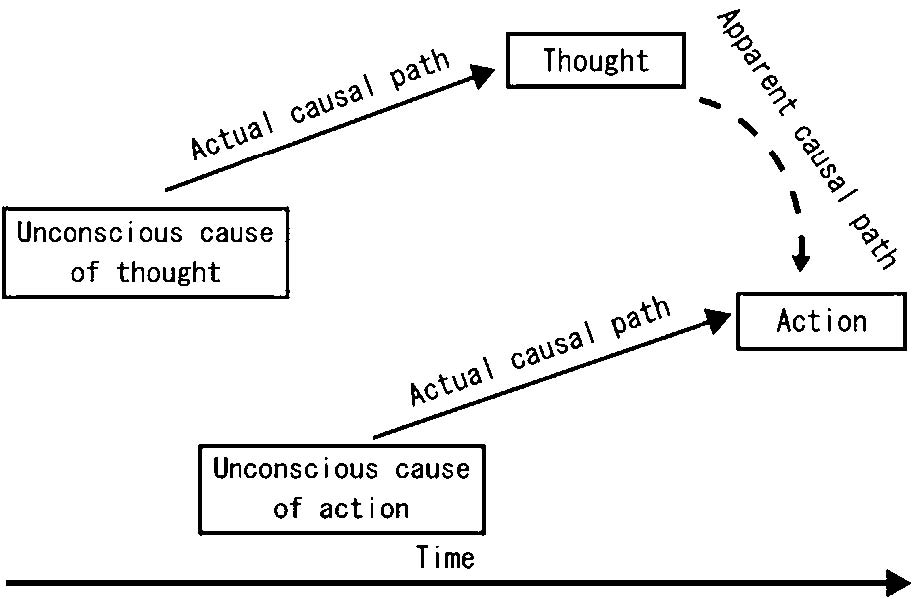Comprehensive List of Researchers "Information Knowledge"
Department of Media Science
- Name
- MITSUMATSU, Hidemichi
- Group
- Cognitive Informatics Group
- Title
- Assistant Professor
- Degree
- Dr. of Psychology
- Research Field
- Experimental psychology / Human perception / Voluntary action

Current Research
Psychology of Causality Between Voluntary Action and Environmental changes
OUTLINEWhen environment changes how do humans perceive the causality between their voluntary actions and such environmental changes ? We are experimentally investigating the human psychological processes of causality through an information-processing approach. Humans are constantly in a cycle of environmental perception, intention, voluntary action, and environmental change. They perceive causality between intention and action, and between voluntary action and environmental change. Recent researches show that intention plays an active role in perceiving environment. Thus, intention is not a useless concept and must be placed somewhere in the informational flow of human psychology. We are clarifying the psychological processes involved in the above cycle.
TOPICS
(1) Causality between intention and action
Lay people believe that intention causes action. But scientific experiments have shown that brain potential change which reflected subsequent action initiation arose before people intended the action. This finding indicates that voluntary actions are initiated unconsciously without intention, casting a doubt on human free will. The figure illustrates a hypothesis that intention (thought of action) and action are independently produced and thus causal connection between the two is apparent.
(2) Causality between action and environmental change
Causality between action and environmental change is not as strongly perceived compared to intention and action. Especially when the changes are unfamiliar, it is difficult to judge whether they were caused by one's own action or an external force. What action and change are likely to be perceived in causal relations ? For example, should the directions of action and environmental change be consistent for causal perception ? How does a temporal interval between the two affect causal perception ? We are specifying factors for causal perception.
(3) Intention contributes to environmental perception
Intending action implies predicting changes of environment as results. Humans perceive environment differently depending on whether the contents of prediction and environmental change are the same or different. How does the human perceptual system produce these different percepts ? Among psychological research fields, perception is one of the most well-understood processes at its physiological level. In contrast, intention is an abstract concept whose function is not unambiguously positioned in the information flow of the human psychological system. By studying phenomena concerning intention along with perception, we are clarifying what the concept of intension means from the viewpoint of information processing as well as to what extent the function of intention predicts changes of environment and through what processes predicted information affects the perception of changes of environment.
FUTURE WORK
Against the background of the above-mentioned research, we will continue to develop an understanding of intention from an information-processing viewpoint. Our research directly treats normal people. On the other hand, in the field of clinical psychology, cases of disfunction of intention have been reported, such as schizophrenia and phantom limbs. Such cases are capturing much research interests among psychologists. We hope to provide basic and useful research knowledge for understanding these clinical phenomena.

Figure : Apparent causality
Career
- Hidemichi Mitsumatsu received a Dr. of Psychology degree from The University of Tokyo in 2004.
- Since 2004, he has been an Research Assistant of the Department of Media Science, Graduate School of Information Science, Nagoya University.
Academic Societies
- The Japanese Psychological Association
- The Japanese Psychonomic Society
- Japanese Cognitive Science Society
Publications
- Mitsumatsu, H and Yokosawa, K. (2003). Efficient extrapolation of the view with a dynamic and predictive stimulus. Perception, 32, 969-83.
- Mitsumatsu, H and Yokosawa, K. (2002). How do the internal details of the object contribute to recognition ? Perception, 31, 1289-98.
- Mitsumatsu H. Voluntary action affects perception of bistable motion display. Perception. 2009; 38(10):1522-1535.








